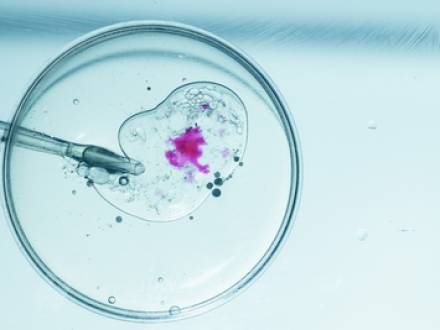What Happens to Embryos in a Texas Divorce?
 When a couple decides to get a divorce, there are many things they need to sort out, from dividing their property to arranging child custody. If you and your spouse have embryos stored from fertility treatments, how would they be handled in a divorce? This can add another layer to the complexity of divorce proceedings. In Texas, the law doesn’t have a specific rule about what happens to embryos during a divorce, so if this is something you are considering, speak with a knowledgeable San Antonio, TX divorce lawyer to find out more.
When a couple decides to get a divorce, there are many things they need to sort out, from dividing their property to arranging child custody. If you and your spouse have embryos stored from fertility treatments, how would they be handled in a divorce? This can add another layer to the complexity of divorce proceedings. In Texas, the law doesn’t have a specific rule about what happens to embryos during a divorce, so if this is something you are considering, speak with a knowledgeable San Antonio, TX divorce lawyer to find out more.
How are Embryos Treated in a Texas Divorce?
When a couple gets divorced, the various parts of their life get characterized. If they have children, the parents have to reach a parenting arrangement. Even if one gets the majority of custody, Texas courts generally prefer granting both parents at least some amount of parenting time. Texas also follows a "community property" model for dividing property in a divorce. That means that all property and assets acquired by the couple during their marriage are considered under the equal ownership of both spouses and will be split down the middle in a 50/50 division in a divorce. But where do embryos fall?
- Ownership and agreements: The first thing to consider is whether you and your spouse had any agreements about what should happen to the embryos if you separated. Many couples sign contracts with fertility clinics when they create embryos, outlining what should be done if they split up. These agreements can guide how the embryos are treated.
- Legal considerations: Things are more complicated if there is no written agreement. Texas courts do not have a clear law for embryos, so judges often look at the intentions of the people involved and the circumstances of the case. If you and your spouse disagree about what should happen to the embryos, a judge might need to make a decision based on various factors, including what could be considered fair and reasonable.
- Negotiation and mediation: In many cases, couples can work out an arrangement between themselves. In mediation, a neutral third party helps the couple come to an agreement. This can be a good option if you want to avoid going to court and can agree on what happens to the embryos.
Schedule a Free Consultation with a Bexar County, TX Divorce Lawyer
Deciding what happens to embryos during a Texas divorce can be complex, especially if you and your spouse never had a clear agreement about them in place. A qualified San Antonio, TX divorce attorney can help you figure it out. At Brandon Wong & Associates, we are dedicated to addressing unresolved issues thoughtfully for the benefit of your entire family. Call us at 210-201-3832 to schedule a free consultation.




 210-201-3832
210-201-3832



